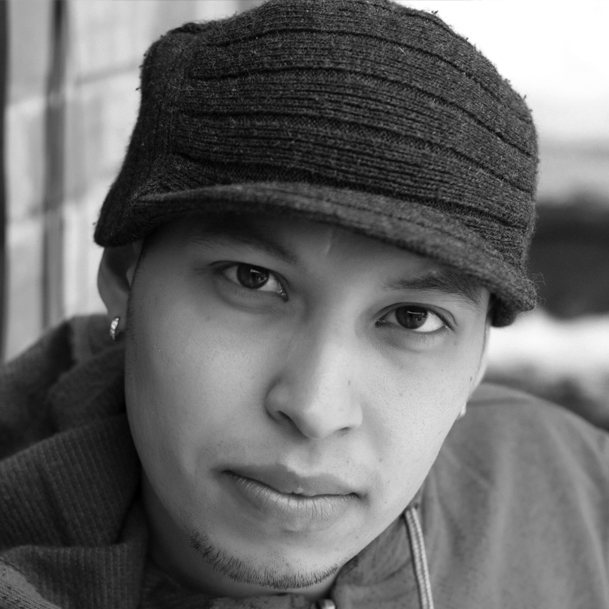The Game Changer: Fires Ablaze
The times they are a changin’ and with any great shift there are species that evolve and adapt to the needs of their environment. Then there are those in the animal kingdom that really resist the change, for whatever reason; species that struggle to accept the natural order of things, to progress in their environment.
Human reactions to change are so varied, so subjective, that our actions can be unpredictable and, for an artist, refreshing to witness.
Let’s take our current arts ecology. There has been an incredible outcry from artists of all artistic mediums in Toronto for equitable and diverse practices. This outcry is a much louder echo of the cry our senior artists and champions of diversity have made through the years, which slowly began to alter the artistic landscape of our city. Through their combined victories and their struggles with adversity, we emerging artists—new blood—have with renewed energy and vigor taken up the call and now march with our elders, treading new paths amongst our urban jungle.
The landscape is changing, the status quo beginning to shift. In these new and exciting seasons, the artistic climate of our community is beginning to understand the value of tilling the earth, and for some fields, scorching the lands in order for new life to grow.
For those resistant to change: I get it, it’s scary as hell. But as I was once caught in a bushfire in Central America, I have a suggestion. In a bushfire, fierce winds feed the flames, which can turn and consume you. There’s a trick to avoiding the danger, though, if you are attentive enough to your surroundings, willing to listen and work with the environment: this same wind can speak to you. It can guide you, move you safely around the fires, and keep you ahead of the flame and the impending peril.
For those resistant to change: I get it, it’s scary as hell. There’s a trick to avoiding the danger, though, if you are attentive enough to your surroundings.
A fire has been lit within the theatre community of Toronto. This fire was not given to us through some higher being, we did not steal the flame. Our fire was created through the countless years of singing our songs of silence. It was earned through years of acting in the dark. Our anger is our spark. Our voices demand to be heard. So we created our own platforms, traversing the caves of inequality with the only form of light we have: our passion. By focusing our anger, we have learned to fuel our artistic passions and set ablaze the walls of oppression. We have begun to exit the cave and have entered the fields.
And with this a line has been drawn. Two factions now exist: those who are adapting and evolving with the needs of the community and those who are resistant to hear the winds cry.
True equity requires a commitment from organizations on every level. It is not enough that diverse practices remain on the stage. Boards, creative teams, administration, juries… They all need to reflect this.
Our anger is our spark. Our voices demand to be heard.
For artists new to the Toronto jungle, seeking refuge, a safe place to create, a community to share their stories with, here’s a word of advice: know well the house in which you dwell.
Many self-serving companies claiming to be “allies” in support of diverse and equitable practices are popping up. I can confidently say that not all of the intentions to “serve” our community are good-natured. Sadly, many companies and “leaders” of our institutions only champion “diversity” and “equity” because it affects their pocketbooks. This happens at every level. Be it in the indie or commercial realm, on our streets or in our schools.
But we are more than a commodity.
With the recent change to granting from the Canada Council for the Arts and with the much-needed support to the arts, it is all the more vital that artists who apply to the “diverse” categories remain aware of the companies they are engaging with. Do a little research. Are you the only person reflective of your community in the room? That’s called tokenism and it’s not fun nor is it safe.
When you grow up with privilege, equality feels like oppression.
True equality and diverse representation is 50 percent of all levels of an organization, and anything less than half—and then calling your board, jury, or creative team diverse—is tokenism. These tokens become the organization’s “voice” for diversity. Outnumbered and alone, these voices are given the additional burden of representing the organization’s “desire” to be equitable. This is a Band-Aid solution that becomes dry grass, which feeds the flames of our current firestorm.
Is there a way to quell the flames?
I think so.
I look around at our theatre community and I see reflections of privilege. For far too long these reflections have been called history, have been taught in our schools, and have appropriated cultures and beliefs to the point that they have distorted realities into fictions; fictions that have become stereotypes, stereotypes that contaminate our communities and tell our audiences that these fictions are our reality. This is a systemic problem, engrained in and poisoning not only our workforce but also our education systems.
“When you grow up with privilege, equality feels like oppression.”
So I get the fear those in power and privilege may have. But change does not have to be a radical act. However, there are many institutional leaders at every level of our arts community (ASOs, unions, companies, funders, schools, etc.) who would have us believe that diverse and equitable practices takes time and money.
Humbug.
HUMBUG: deceptive misrepresentation, short of lying, especially by pretentious word or deed, of somebody’s own thoughts, feelings, or attitudes. –Harry G. Frankfurt, On Bullshit
What our community needs is:
- More arts leaders who are in their mid-twenties to early thirties
- More arts leaders who are of colour, women, queer, trans, disabled
- More arts leaders who have not grown up with privilege (representation from varying socioeconomic communities)
- Arts schools that accept and train artists from #2 and #3 on this list
Why?
This is much more representative of the actual population. There is a disconnect that happens when leaders of any institution, party, nation, or community do not understand the people they are trying to represent.
When this happens, ignorance takes the form of fact. Stereotypes and cultural appropriation take affect; intolerance and exclusion run rampant and give rise to racism, sexism, and discrimination (to varying and at times seemingly innocent degrees).
This is evident in our arts community. There is a divide—a gap—that exists, which will only ever truly be filled once those arts leaders who are well beyond the age of having real resonance with our artists here and now (our future storytellers) humbly exit the stage.
It is time for some of these individuals to step down from their secure and comfortable thrones of power—if they really care about the state of our arts community—and give the reigns to new blood, to people who know and are in contact with the real communities our artists and their art are trying to serve.
For those companies who are new and have fresh faces, please be a true accomplice and do not add to the flames. Seek to quell them. Do not be a “champion of diversity” by saying you are diverse and then naming your accomplishments. Engage with us, support us, and listen. For those with privilege, take a back seat and help those who do not have the stage to voice their own song.
Change is happening.
Fires are ablaze.
How many of us can hear the wind call?









Comments